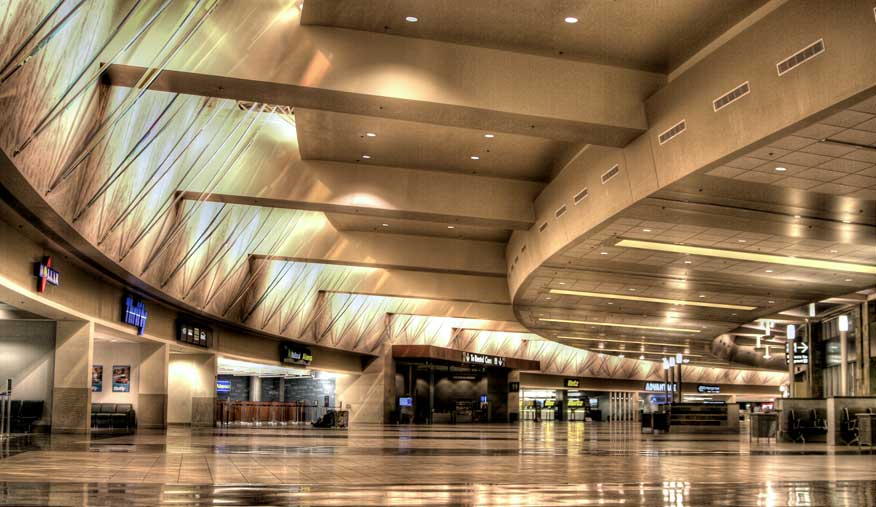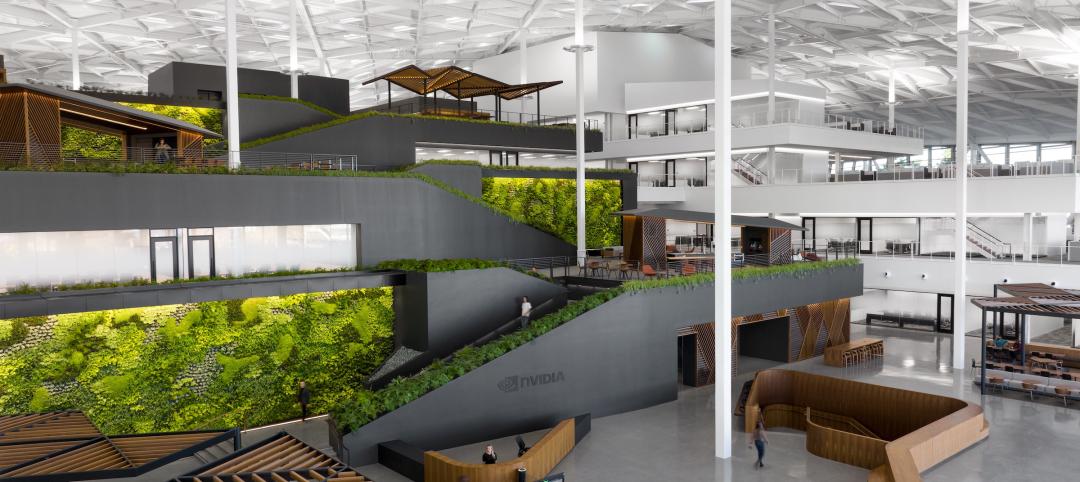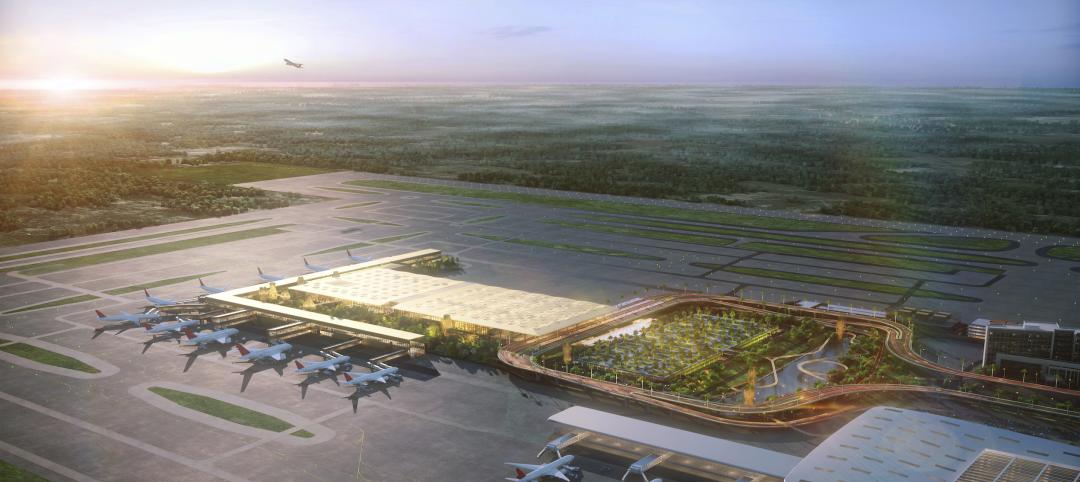The Federal Aviation Administration forecasts that air travel in the U.S. will increase by about 50% in the next 20 years. Are airports ready for that surge? More important, can airports provide the kind of frictionless experience that passengers will expect and demand?
To explore these questions, last February engineering giant Arup conducted a “salon” in San Francisco on the future of aviation. Invitees were a diverse mix of 22 experts representing airport operators, planners, developers, engineers, and manufacturers, including some—like representatives from Autodesk, Intel, and Visa—who offered a broader context.
Arup let BD+C take a peek at a draft of its report on the salon’s key points. The report identifies core themes for three primary stakeholders—the airlines, passengers, and airports—that revolve around “choreographed seamlessness,” “connected and predictable” service, and productive systems. Design can drive airport efficiency, but only when there’s positive cooperation among stakeholders.
Passenger satisfaction often begins with “technological convergence” that facilitates easier mobility and processing. “Touchless screening, automated check-in, tailored retail services, and real-time operational information could stimulate the seamless experience,” the draft stated.
However, technology is developing faster than the aviation industry can devise purposes for it. On the other hand, “no tech trumps high tech,” meaning that passengers still prefer a humanistic, natural environment. “The future of technology will always be about the people who use it.”
Other lessons learned:
• Technology shrinks future airport concrete. Huge spaces once allocated for check-in and security should be reconsidered as passengers adapt to self-service options.
• Collaboration frees technology. Barriers between airlines, airports, regulators, and technology providers will only thwart process enhancements.
• Your bag will have its own identity. Renovation and new construction of airport terminals often focuses on streamlining baggage-handling systems. While paper bag tags aren’t going away, it’s only a matter of time before luggage that’s traceable via bar codes or RFID chips becomes available for purchase in stores.
• The future of retail is at the airport. Retail, food, and beverage are big revenue streams for airports. That might explain why some large hubs have turned their terminals into shopping malls.
• Your journey will be branded. Airlines currently control the traveler’s experience, but the salon’s participants see opportunities for other entities—including airports themselves—“to occupy the passenger’s cognitive space.”
Another theme from the salon: the need for “intelligent” ground transportation that “allows riders comfort in knowing their entire journey is accounted for before boarding.” Technology could help passengers pre-plan and customize their trip along all journey touch points, like scheduling and predicting arrival times for door-to-hotel transport, or tracking luggage in real time.
Many of the salon’s attendees highlighted the need to ensure that regulatory actions—especially those relating to security, customs, and immigration—are enforced in ways that minimize passenger delays.
Related Stories
Giants 400 | Aug 22, 2023
Top 115 Architecture Engineering Firms for 2023
Stantec, HDR, Page, HOK, and Arcadis North America top the rankings of the nation's largest architecture engineering (AE) firms for nonresidential building and multifamily housing work, as reported in Building Design+Construction's 2023 Giants 400 Report.
Giants 400 | Aug 22, 2023
2023 Giants 400 Report: Ranking the nation's largest architecture, engineering, and construction firms
A record 552 AEC firms submitted data for BD+C's 2023 Giants 400 Report. The final report includes 137 rankings across 25 building sectors and specialty categories.
Giants 400 | Aug 22, 2023
Top 175 Architecture Firms for 2023
Gensler, HKS, Perkins&Will, Corgan, and Perkins Eastman top the rankings of the nation's largest architecture firms for nonresidential building and multifamily housing work, as reported in Building Design+Construction's 2023 Giants 400 Report.
Standards | Jun 26, 2023
New Wi-Fi standard boosts indoor navigation, tracking accuracy in buildings
The recently released Wi-Fi standard, IEEE 802.11az enables more refined and accurate indoor location capabilities. As technology manufacturers incorporate the new standard in various devices, it will enable buildings, including malls, arenas, and stadiums, to provide new wayfinding and tracking features.
Architects | Jun 6, 2023
Taking storytelling to a new level in building design, with Gensler's Bob Weis and Andy Cohen
Bob Weis, formerly the head of Disney Imagineering, was recently hired by Gensler as its Global Immersive Experience Design Leader. He joins the firm's co-CEO Andy Cohen to discuss how Gensler will focus on storytelling to connect people to its projects.
Digital Twin | May 8, 2023
What AEC professionals should know about digital twins
A growing number of AEC firms and building owners are finding value in implementing digital twins to unify design, construction, and operational data.
Design Innovation Report | Apr 27, 2023
BD+C's 2023 Design Innovation Report
Building Design+Construction’s Design Innovation Report presents projects, spaces, and initiatives—and the AEC professionals behind them—that push the boundaries of building design. This year, we feature four novel projects and one building science innovation.
Airports | Apr 18, 2023
India's mammoth new airport terminal takes ‘back to nature’ seriously
On January 15, 2023, Phase 1 of the Kempegowda International Airport’s Terminal 2, in Bengaluru, India, began domestic operations. The 2.75 million-sf building, designed by Skidmore, Owings & Merrill (SOM), is projected to process 25 million passengers annually, while providing its travelers with a healthier environment, thanks to extensive indoor-outdoor landscaping that offers serenity to what is normally a frenzied experience.
Architects | Apr 6, 2023
Design for belonging: An introduction to inclusive design
The foundation of modern, formalized inclusive design can be traced back to the Americans with Disabilities Act (ADA) in 1990. The movement has developed beyond the simple rules outlined by ADA regulations resulting in features like mothers’ rooms, prayer rooms, and inclusive restrooms.
Airports | Feb 28, 2023
Data visualization: $1 billion earmarked for 2023 airport construction projects
Ninety-nine airports across 47 states and two territories are set to share nearly $1 billion in funding in 2023 from the Federal Aviation Administration. The funding is aimed at help airports of all sizes meet growing air travel demand, with upgrades like larger security checkpoints and more reliable and faster baggage systems.

















